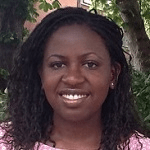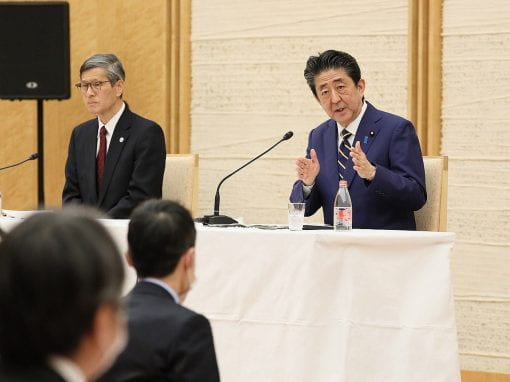Translating COVID-19 and Japan: A Historical Reflection on the Social Standing of Scientists

Ruselle Meade (Cardiff University, United Kingdom)
As a crisis that inevitably mixes politics with science, the COVID-19 pandemic has heightened the visibility of scientists. Political leaders the world over are keen to stress that their responses to the pandemic are “driven by science.” It was warnings from the government’s panel of scientific experts, argued Prime Minister Abe, that lay behind his decision to declare a state of emergency (since lifted across most of the country). To underscore the scientific basis of the policy, he is regularly accompanied at press briefings by infectious disease expert, Dr. Shigeru Omi, head of his advisory panel and World Health Organization executive board member. In the public presentation of their political response to the pandemic, Prime Minister Abe and other leaders seek to draw on the public perception of scientists as disinterested and therefore apolitical. No one wants to be seen to be playing politics during a pandemic.

Prime Minister Shinzō Abe (R) with Dr. Shigeru Omi (L), head of the committee advising the government on COVID-19. Image courtesy Wikimedia Commons. Date. 7 April 2020.
However, as any historian of science will be quick to point out, the emergence of the scientist as public authority has by no means been an apolitical process. The cachet attached to scientists has been acquired through the displacement of competing claims to authority, a process that has required political guile. As the science historian and sociologist Steven Shapin has pointed out, the authority of science depends on trust. We have no first-hand knowledge of many of the scientific phenomena that we believe; we know them “by trusting those who have, or by trusting those who trusted those who have” (Shapin 1998: 8).
Locating Trust in Japanese Science
As a researcher interested in the emergence of the “scientist” (kagakusha) as a social and professional category in Japan, the visibility of scientists during the COVID-19 outbreak has led me to reflect on their agency in cultivating this sense of trust among the public. That our image of the ideal citizen is of one who behaves in line with scientific consensus points toward a large degree of success among scientists in securing social prestige.
Although scientists may be lending their aura of authority to politicians during this pandemic, they play a supporting role, with their advice channeled through political leaders. However, when Japanese scientists were shaping their nascent social and professional identities in the late nineteenth century, they were keen to speak to the public directly without mediation and were proactive in seeking out opportunities to do so. Initially, the main way they did this was through a burgeoning periodical press. Through their own publications, they portrayed themselves as agents of modernity and asserted their value to various publics, presenting themselves to tradesmen and farmers, for example, as sources of new expertise that would enable them to increase their productivity. In their self-representations, they fashioned themselves as ideal citizens: not only did they engage in modern, rational practices, such as “observation” and “experimentation,” which gave them privileged access to the “truth,” they possessed the kind of temperament to which all citizens should aspire.
These engagements with the public were central to the training of scientists. When the University of Tokyo was established in 1877, students in the faculty of science were expected to contribute to Gakugei Shirin (『学芸志林』Journal of the Arts and Sciences), an institutional magazine that aimed to reach beyond the academy. Through writing in publications such as this, trainee scientists honed their voice. Even as these scientists started speaking more to their peers, they continued to engage with the public and encouraged ambitious youngsters to pursue science as a means of social advancement.
By the early twentieth century, Japanese scientists had achieved a measure of cultural esteem in the public sphere. However, their story is not a teleological one of progression from obscurity to an unassailable position of esteem. Scientists continually had to ward off challenges to their authority and questions about their value to society. Perhaps most notable are the pollution crises of the 1960s and ’70s, led many Japanese scientists to chafe against their image as a separate entity from the public. With scientists—especially government ones—considered complicit in pollution disasters, some moved outside of the academy to work directly with citizens who empowered themselves as scientific actors by conducting their own testing of pollutants. More recently we have seen citizens being active as scientific actors in the aftermath of the Fukushima nuclear disaster, when distrust in official scientific advice resulted in citizen groups deciding on radiation protocols for themselves. Depending on the trajectory of this pandemic in Japan, trust in scientists, such as Omi, may well suffer.
Scientific work = Translation
Translation has also played an important role in shaping the status of the scientist. Like communication with the public, foreign language training and translation was not an addendum, but part and parcel of the training of the scientist. Owing to the role of foreign teachers and study abroad in developing the first generations of scientists during the Meiji period, being a kagakusha inevitably also meant being a linguist. Translation was not just about accessing material in foreign textbooks and overseas laboratories, it was also a means of engaging with the Japanese public. A significant proportion of the articles by trainee scientists in Gakugei Shirin comprised translations, be they from foreign scientific magazines or lectures from their foreign teachers. Scientists were curators who positioned themselves as gatekeepers with access to “authentic” European knowledge. Moreover, by creating terms for the new concepts they encountered, they shaped how the public would make sense of their new relationship with the state, which was to have greater interventions in their lives in the name of public health. Translation also allowed Japanese scientists to draw on the prestige of their teachers. Just as a Meiji doctor might strategically place portraits of the German professors under whom they studied in their office, scientist-translators could benefit from having their name presented alongside that of a foreign expert on the frontispiece of a book.
Even though translation has played a role in elevating the status of scientists, it can also undermine them. The appropriation of translation in propagating and amplifying discourses of scientific denialism is under-scrutinized and needs to be understood. As we have seen in the case of climate change and tobacco, interest groups hire their own scientists to create new pockets of authority to undermine scientific consensus (Oreskes and Conway, 2011). These groups are savvy in their use of translation, localizing their materials to speak to different audiences. This raises the question: How might translation help or hinder the effectiveness of COVID-19 vaccination campaigns? Before the pandemic, the World Health Organization identified vaccine hesitancy as one of the top ten threats to global health. Vaccine hesitancy, defined as a “delay in acceptance or refusal of vaccination,” is potentially now an even greater threat, given that experts point to a vaccine as being the way out of the pandemic. Researchers from the Vaccine Confidence Project have pointed to the role of global networks of anti-vaccine discourse in mobilizing sentiment against the Japanese government’s human papillomavirus (HPV) vaccine, which resulted in suspension of the vaccination programme in 2013 (Larson et al., 2014). Misinformation about the coronavirus outbreak has already been spreading globally with alarming speed. Any public health response to the pandemic will have to counter anti-vaccination discourses, which traverse linguistic barriers with great ease.
The pandemic is forcing us to rethink the nature of relationships that exist between the citizen, the state, and public health. The Japanese government, at the urging of scientists, is relying on individual citizens to change their behaviors to protect public health, given that this cannot be legally mandated owing to Japan’s constitution. If citizens’ trust in scientists breaks down this will surely be detrimental to public health. The authority of the scientist, so meticulously cultivated in the past, might well look somewhat different on the other side of this pandemic.
References
Heidi J Larson, Rose Wilson, Sharon Hanley, Astrid Parys & Pauline Paterson, “Tracking the global spread of vaccine sentiments: The global response to Japan’s suspension of its HPV vaccine recommendation,” Human Vaccines & Immunotherapeutics 10, no. 9 (2014): 2543-2550.
Naomi Oreskes and Erik M. Conway, Merchants of Doubt: How a Handful of Scientists Obscured the Truth from Tobacco Smoke to Global Warming (New York: Bloomsbury, 2011).
Steven Shapin, “Placing the View from Nowhere: Historical and Sociological Problems in the Location of Science,” Transactions of the Institute of British Geographers 23, no.1 (1998): 5-12.
Suggested Readings
中尾麻伊香 『科学者と魔法使いの弟子 ―科学と非科学の境界』青土社、2019年 (Maika Nakao, Scientists and the Sorcerer’s Apprentice: The Border between Science and Non-Science, Seidosha, 2019).
Ruth Rogaski, Hygienic Modernity: Meanings of Health and Disease in Treaty-Port China (Berkeley: University of California Press, 2004).
Ruselle Meade is a lecturer in Japanese studies at Cardiff University, United Kingdom. She is a co-investigator on the UKRI-funded project, The Japanese scientist in Japan and in the world: de-centering the history of science, which explores the emergence of the ‘scientist’ as a social and professional category in Japan, and which investigates the role of transnational networks in the development of Japanese scientists’ careers. You can follow her on Twitter at @ruselle_meade.